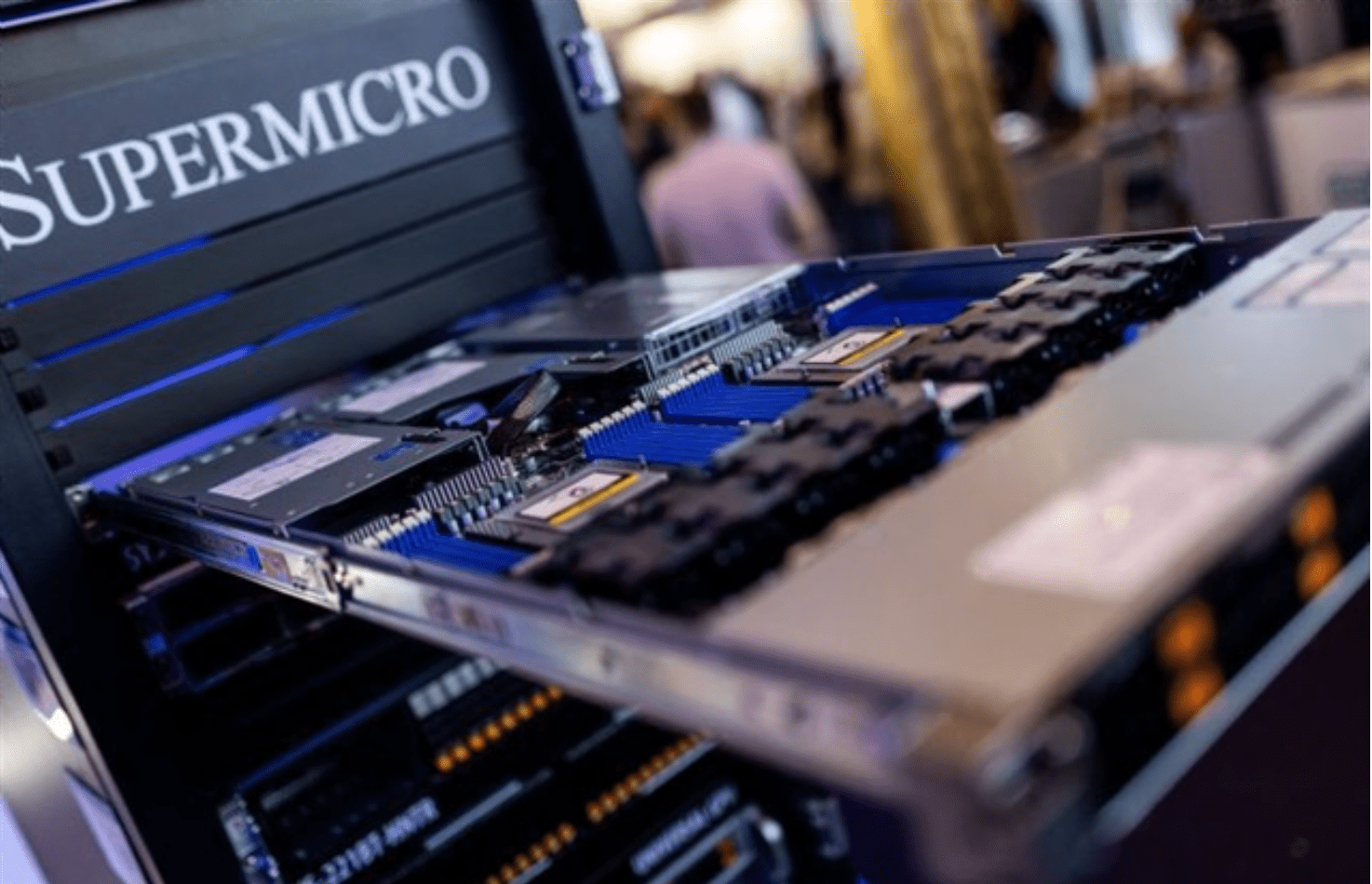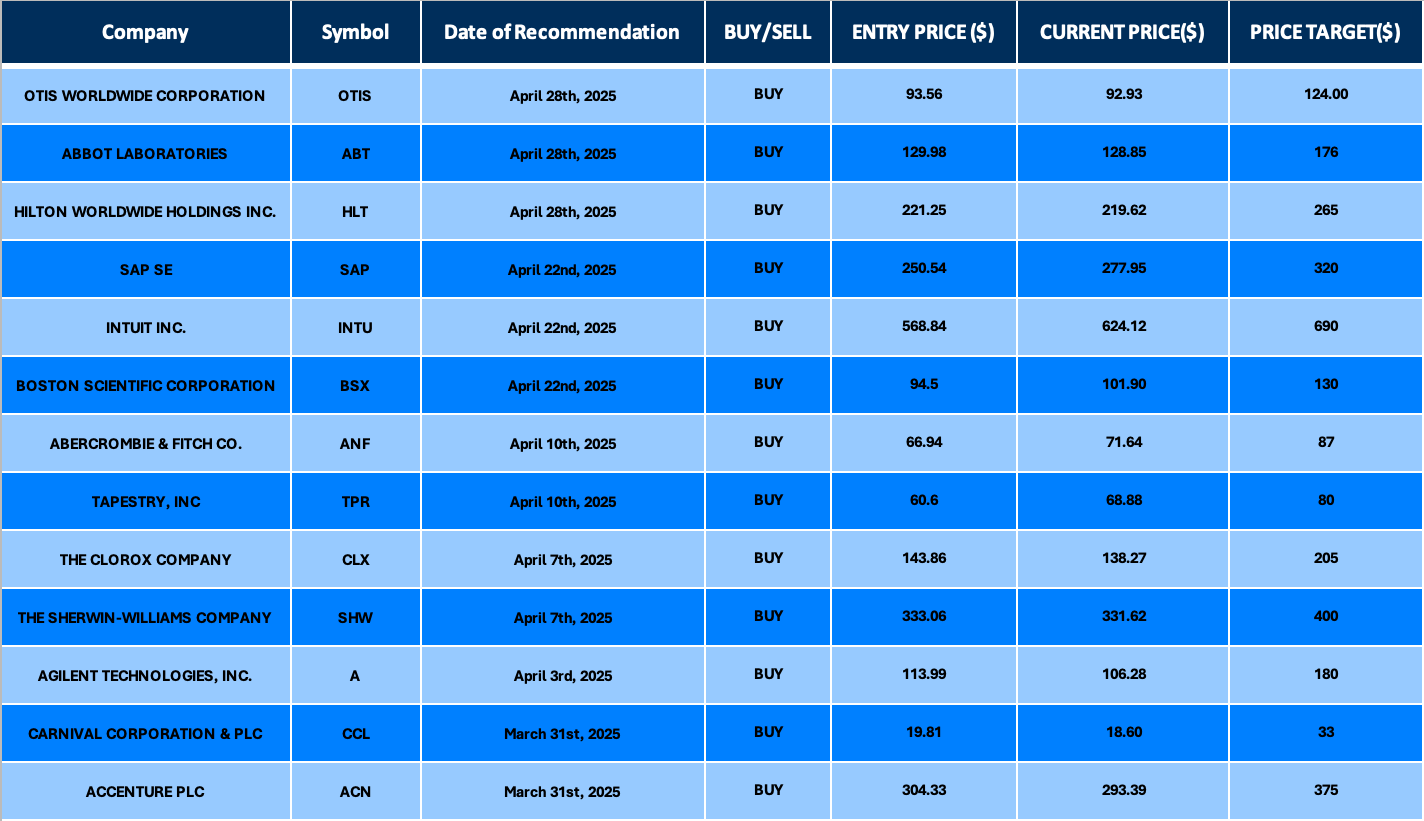
Date Issued – 15th May 2025
Preview
Global markets are treading cautiously as investors digest mixed signals from trade diplomacy and economic data. US futures slipped early Thursday, with Dow, S&P 500, and Nasdaq contracts all lower, as optimism over US-China tariff rollbacks was tempered by investor anticipation of fresh inflation and retail sales figures. Japanese investors extended their foreign equity buying streak, signaling confidence in global risk assets despite lingering trade uncertainty. Meanwhile, the Bank of Japan is expected to hold rates through September, delaying further tightening in response to Trump’s tariff moves. In corporate news, Boeing shares edged higher after securing a record $96 billion jet deal with Qatar during Trump’s Middle East tour, while Supermicro stock surged 40% this week on a $20 billion AI partnership and bullish technical signals. As the week progresses, market participants will be closely watching economic prints and geopolitical developments for clarity on the direction of monetary policy and global growth.
Futures Dip as US-China Trade Progress Fails to Soothe Market Nerves
US equity futures edged lower Thursday as markets digested the tentative progress in US-China trade talks and braced for fresh inflation and retail data. Dow futures (YM=F) fell 0.59%, S&P 500 futures (ES=F) declined 0.46%, and Nasdaq 100 contracts (NQ=F) slipped 0.50%. The pullback follows a tech-led rally on Wednesday, with Nvidia driving gains amid optimism over AI-related spending and renewed Middle East tech partnerships. Despite easing tariff tensions earlier in the week, investors remain cautious ahead of the April Producer Price Index and retail sales data, which may gauge the resilience of consumer demand under evolving trade dynamics. Meanwhile, Cisco and CoreWeave offered contrasting AI-driven earnings outlooks, reinforcing the uneven terrain in tech valuations.
Investment Insight: Recent volatility underscores the market’s sensitivity to geopolitical developments and inflation data. While AI remains a structural growth driver—evident in Cisco’s upgraded forecast—the broader macro picture, including trade policy swings and inflation metrics, continues to steer sentiment. Investors should maintain selective exposure to AI and tech, while watching for signals in consumer data and producer pricing that could inform the Fed’s rate trajectory and broader equity positioning.
Japanese Investors Sustain Global Equity Push Amid Trade Truce Optimism
Japanese investors extended their foreign equity buying streak to an eighth consecutive week, buoyed by easing global trade tensions and renewed optimism over U.S. tariff policy. Net purchases of overseas stocks totaled ¥250.8 billion ($1.72 billion) for the week ended May 10, according to Japan’s Ministry of Finance—moderating from the previous week’s ¥2.55 trillion but contributing to a record-setting ¥8.2 trillion in net foreign equity acquisitions year-to-date, the highest since comparable data began in 2005. The shift follows significant tariff rollbacks by both the U.S. and China and a new U.S.-UK trade pact, which have helped lift the MSCI World Index nearly 21% from its April low. Japanese investors also returned to long-term overseas bonds with ¥1.92 trillion in net inflows, reversing prior outflows, while foreign capital continued to flow into Japanese stocks for a sixth straight week.
Investment Insight: The sharp appetite for foreign risk assets among Japanese investors signals growing conviction in a soft-landing scenario for global growth amid de-escalating trade tensions. The sustained demand for overseas equities and bonds suggests a strategic pivot toward yield and diversification as domestic returns remain constrained. Investors should monitor Japanese flows as a bellwether for confidence in global markets, particularly as cross-border capital reallocations may accelerate if inflation data and trade diplomacy continue to stabilize.
Boeing Lands Record $96 Billion Qatar Order Amid Trump’s Gulf Trade Push
Boeing secured its largest-ever widebody aircraft order as Qatar Airways committed to purchasing up to 210 jets in a $96 billion deal announced during President Trump’s diplomatic visit to Doha. The agreement includes firm orders for 130 Dreamliners and 30 777-9s, with options for an additional 50 aircraft. The deal marks a significant boost for Boeing, which has faced production setbacks, labor disruptions, and reputational damage following last year’s 737 Max incident. The broader U.S.-Qatar economic package totals $243 billion, encompassing aerospace, defense, and technology cooperation. Boeing shares rose 0.64% on the news, though investors remain mindful that large-scale aircraft orders are often subject to change. The announcement also highlights the Trump administration’s strategy of leveraging high-profile corporate deals to underpin its evolving trade diplomacy.
Investment Insight: The Qatar order signals a turning point for Boeing’s commercial recovery and underscores the strategic role of state-backed airline demand in stabilizing aerospace supply chains. While political optics may cloud the narrative, the scale of the deal positions Boeing to regain delivery momentum and improve cash flow visibility. Investors should weigh the long-term value of this backlog against ongoing geopolitical risks and supply-side constraints, particularly as the administration uses aircraft orders as trade levers in a broader economic realignment.
Market price: Boeing Co (BA): USD 204.72
BOJ Seen Holding Rates Through September as Tariff Uncertainty Clouds Outlook
The Bank of Japan is expected to pause its tightening cycle through the third quarter amid rising uncertainty from U.S. trade policy, according to a Reuters poll of economists. A resounding 95% of respondents forecast no rate change at the BOJ’s June meeting, while 67% now see borrowing costs remaining at 0.50% into September—nearly double the share from April. Despite the pause, just over half of economists still expect at least one 25-basis-point hike by year-end. The shift reflects growing concern over the economic drag from President Trump’s newly imposed tariffs, which include a looming 24% levy on Japanese exports starting in July. BOJ officials, including Deputy Governor Shinichi Uchida, have maintained a cautiously optimistic tone, pointing to continued wage growth and inflation momentum, though the pace of rate normalization may slow as global trade dynamics evolve.
Investment Insight: The BOJ’s expected hold underscores how geopolitical risk is increasingly shaping monetary strategy. With Japanese policymakers prioritizing stability amid external shocks, investors should temper expectations for near-term rate hikes. The yen’s trajectory, capital flows, and equity valuations may remain sensitive to trade negotiations and U.S. tariff enforcement. For fixed income investors, the extended pause could support JGB demand, while equity investors may focus on domestic demand resilience as a buffer against export-driven volatility.

Supermicro Soars on AI Deal, Technical Breakout—Key Levels in Focus
Supermicro (SMCI) shares have surged 40% this week, closing at $45 on Wednesday after a second straight 16% daily gain. The rally follows a $20 billion AI infrastructure deal with Saudi Arabia’s DataVolt and bullish commentary from Raymond James, which named the server maker a leader in AI-optimized systems. The move marks a decisive technical breakout from a falling wedge pattern, with the stock pushing above its 200-day moving average on the highest trading volume since February. Supermicro is now up 50% year-to-date and has rebounded 63% from its April low, regaining investor confidence after earlier delisting risks tied to delayed filings.
Investment Insight: Supermicro’s breakout underscores renewed investor appetite for AI-linked infrastructure plays, particularly amid geopolitical deals that signal long-term demand. While momentum remains strong, the stock nears technical resistance at $50 and $63—levels that may trigger profit-taking. Support at $35 and $26 offers downside reference points as volatility persists. Investors should remain tactical, balancing near-term momentum with caution around overbought conditions, and focus on how execution and order visibility evolve in the wake of this landmark Middle East agreement.
Market price: Super Micro Computer Inc (SMCI): USD 45.00
Conclusion
Markets remain delicately balanced as investors navigate a landscape shaped by geopolitical maneuvering, shifting trade policies, and pivotal economic data. While AI and aerospace deals offer pockets of optimism, caution persists amid uncertainty surrounding inflation trends and central bank responses. The Bank of Japan’s pause and record-breaking foreign equity flows reflect a wait-and-see approach, while US futures suggest profit-taking after recent gains. With key data releases and diplomatic signals still to come, investors are recalibrating expectations in real time. For now, resilience in risk sentiment coexists with a growing awareness of the fragile macroeconomic and political backdrop driving market direction.
Upcoming Dates to Watch
- May 15th, 2025: US GDP, UK GDP, Trade Balance; German WPI, Switzerland PPI, Europe Economic Forecast, Japan GDP
- May 16th, 2025: Japan Industrial Production, Hong Kong GDP
Find below some of our Buy/Sell Recommendations. Balfour Capital Group is a distinguished global boutique investment management firm with $350 million AUM and over 1000 Clients.

Disclaimer: This post provides financial insights for informational purposes only. It does not constitute financial advice or recommendations for investment decisions.




